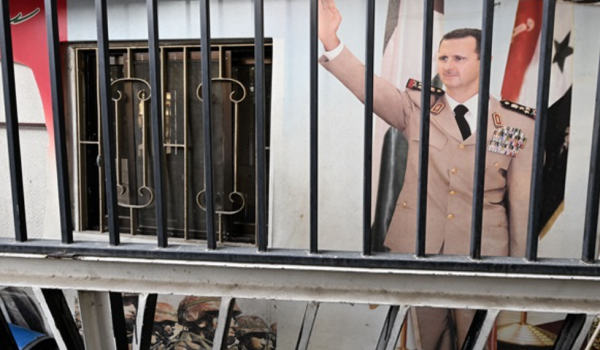
EDITOR’S PICK
KUALA LUMPUR, 14 December – While the world still weeps for the plight of the Palestinians in Gaza, global attention momentarily shifts to Syria.
The fall of Bashar al-Assad’s regime from which the President fled, made it into the headlines of mainstream media and digital media around the world.
The fall of al-Assad’s rule was celebrated by Syrians with much gratitude.
It marks a historic victory for them after enduring for a long time the tyranny, oppression and suffering, under the iron-clad rule of al-Assad.
According to history, the Al-Assad family has ruled Syria for more than 50 years.
However, the uprising of the Arab people or famously known as “Arab Spring,” has inspired fellow Syrians to protest against Al-Assad’s rule.
This sparked a civil war that started in early 2011 and lasted for 13 years.
The fight for independence from al-Assad’s grip has claimed more than 300,000 lives, while 100-thousand others are missing.
Meanwhile, 12 million residents had to flee the country, with an estimated 5.4 million seeking protection abroad.
Now, a new episode has begun.
The question remains of whether the Syrian conflict has really ended now that al-Assad was overthrown.
Or will it plunge the West Asian region into a new age of uncertainty?
For as long as Syria was under al-Assad’s rule, there had been some form of foreign intervention.
The Assad regime was able to survive, not because it had solid political support from the majority of Syrians, but due to its heavy reliance on military support from foreign countries.
Western imperialist powers and regional powers are using the Syrian civil war as an opportunity to support their proxies, while taking into consideration their respective geopolitical interests.
However, the regional balance of power has changed with several important developments in the past two years.
Among them is Israel’s Zionist operations which have wreaked havoc in several countries bordering Syria.
This included the extensive attack on Lebanon and the assassination of Hezbollah leaders, as well as attacks on Iranian military facilities, which is part of its war strategy against the Palestinians.
These in turn have weakened the capability of al-Assad’s allies during critical times.
Thus, a group of liberation fighters took this chance to engage in confrontations with the government army, which consequently led to the fall of the Assad regime.
Truth be told, it is difficult to predict the future of Syria.
After successfully overthrowing al-Assad, this group of liberation fighters will definitely face a more challenging situation.
Nonetheless, the victory has paved the way for a smooth political transition without any major obstacles.
Why is that the case?
Because al-Assad’s departure has left a legacy of destruction and suffering that is strongly imprinted on the Syrians.
There is a possibility that conflicts involving various parties will continue, whether it will take on a more peaceful or more violent form, it remains to be seen.
Syria is also at great risk of becoming like Libya after the fall of Muammar Gaddafi in 2011, which witnessed a prolonged civil war and became a country which is perpetually divided, with each successive government.
What is more worrying is that the superpowers have already started making plans in shaping a new future for Syria.
Our Prime Minister, Datuk Seri Anwar Ibrahim has recently echoed this concern.
He emphasised the importance of a peaceful transition of power which respects the diverse society of Syria.
Datuk Seri Anwar also stressed that any acts of violence must be rejected completely.
Moreover, he called for unity as the foundation for building a peaceful and united country.
The Prime Minister also stressed that sectarian divisions must be avoided at all costs.
Meanwhile, unity should be the main principle in the people’s effort to rebuild Syria.
At the same time, the international community must stand in solidarity to deal with a country in crisis.
In conclusion, Syria needs a government that can really assure its people that what happened during the al-Assad era will not be repeated.
Until a legitimate government is in place, oppression and injustice will continue to exist.
And the Syrians will not be able to live in peace.



